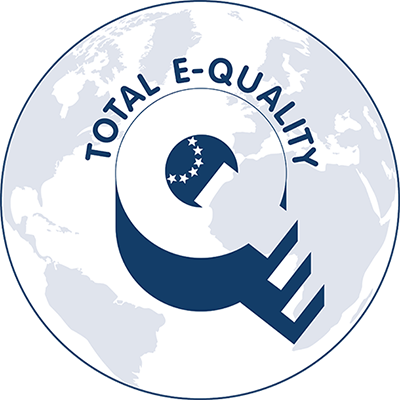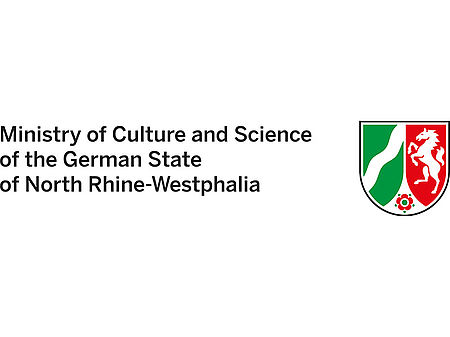Funding: what requirements do funders impose in regard to open access?
Open access (OA) publishing is a major concern for research funders such as the DFG and BMBF as well as for research institutions such as the Fraunhofer-Gesellschaft, the Helmholtz Association, the Leibniz Association and the Max Planck Society. This is reflected in the terms and conditions of their funding programmes. The European Commission has also made open access mandatory for scholarly articles covered by its research funding programmes.
The Open Policy Finder database contains general information on research funders’ requirements in regard to open access. Please consult the funding guidelines issued by the individual institutions for more information. Failure to comply with the specified requirements may result in sanctions, such as having funds frozen or losing the eligibility to apply for subsequent projects.
Funders’ OA requirements and recommendations
The section provides an overview of the OA requirements stipulated by selected funders. This list is not exhaustive: even if an institution does not appear here, it may still impose requirements for open access.
German Federal Ministry of Research, Technology and Space (BMFTR)
The BMFTR has added an open access clause that makes open access a precondition of project funding. Changes to German copyright law (the Zweitveröffentlichungsrecht, or secondary publication right) have established a legal basis for authors to make a version of their published works publicly available online. One of the conditions set by the BMFTR is that at least half of the funding for the research must come from the public purse.
The BMFTR has launched an initiative to promote open access in publishing. Known as the “Richtlinie zur Förderung einer gelebten Open-Access-Kultur in der Forschungs- und Wissenschaftspraxis” (Guideline on embedding and fostering an open access culture in research and academia), this programme is currently funding 24 projects to advance this goal.
German Research Foundation (DFG)
The DFG supports open access and promotes open access publishing in a number of different ways.
The “Open Access Publication Funding” programme offers allowances to help cover the cost of publishing articles open access. Only academic institutions may apply for these allowances, and they must be managed centrally (e.g. by the library). The programme aims to encourage the development of new OA funding structures while also making the costs of OA publishing more transparent.
Publications must meet various criteria to be eligible for allowances under the funding programme. For example, they must:
- have been written by a corresponding author who is based at the institution that is submitting the application,
- be quality assured,
- be released under an open content licence (e.g. Creative Commons) that creates a legally binding framework for any subsequent use.
Ideally, publications should have a persistent identifier such as a digital object identifier (DOI) and be linked to the authors’ ORCID profiles. Articles published in hybrid journals for which no transformative agreements have been signed are not eligible for allowances under this programme.
As well as subsidising the cost of articles in OA journals, the programme also helps with the cost of publishing OA monographs and anthologies and covers other publication types such as preprints and research data. Allowances are only granted in cases where publication fees are charged. Additional conditions apply in each of these cases. Other kinds of publication costs, such as surcharges for over-length articles or colour figures, are not eligible for this funding. Also excluded from this programme are articles published in “mirror journals”, i.e. in an open access version of an existing subscription journal.
Applications for allowances to cover open access publication fees will continue to be accepted in the second phase of the funding programme in 2024. The funding requirements for this programme are calculated on the basis of publications stemming from DFG research funding. In addition to this institution-wide funding programme, researchers can also continue to apply for open access funding for individual DFG research projects.
The “Infrastructures for Scholarly Publishing” programme aims to support the ongoing digital transformation of scholarly communication and promote the transition to open access. Proposals can be submitted in three focus areas: “Structures for Transitioning to Open Access”, “Open Access Infrastructures”, and “Digital Publishing”.
European Commission – Horizon 2020 and Horizon Europe
Open access is mandatory for all peer-reviewed scientific publications relating to the results of projects funded by Horizon Europe, the EU's key funding programme for research and innovation. Following the completion of the peer review process, the publications must be made available at no charge with a licence that at the very minimum allows users to read, download and print the articles. Measures should also be taken to improve the article's accessibility, including the granting of additional rights such as the right to copy, distribute, search, link, crawl and mine.
This mandate initially only applies to peer-reviewed publications in scholarly journals. The requirements are not mandatory for other types of publication such as monographs, edited volumes (collections), conference papers and grey literature, though open access is still recommended in these cases, too.
The mandate in no way implies an obligation to publish project results, however. If an author wishes to apply for a patent, for example, then that process may be completed first, and the decision on whether or not to publish lies entirely with the fundees.
According to the guidelines issued by the European Commission, the act of making a publication publicly accessible consists of two key steps:
1) Funding beneficiaries must deposit a machine-readable electronic copy of the published version or final peer-reviewed manuscript accepted for publication (postprint) in a “trusted repository”, at the latest upon the date of publication. To ensure that the article is preserved in the long term, this step applies even where open access publishing ('gold' open access) is chosen. Moreover, the author of the article must aim to deposit the research data needed to validate and reproduce the results presented in the deposited scientific publication, ideally in a research data repository. Beneficiaries must also ensure open access to the bibliographic metadata. This metadata must include information on the funding programme as well as the project name, acronym and grant number, the publication date, the length of embargo period (if applicable) and a persistent identifier (e.g. DOI).
2) Steps must also be taken to ensure that the publication remains accessible in the long term. This can be achieved by publishing it in an open access journal (gold open access, or through self-archiving (green open access). The author processing charges (APCs) for gold open access are eligible for full reimbursement for the duration of the funded project, though it is important these are included in the project's budget. Reimbursement of publication fees charged by hybrid journals is no longer possible in Horizon Europe. The European Commission also encourages authors to retain their rights and only grant publishers non-exclusive rights. Horizon Europe requires that all publications resulting from project funding should be licensed using CC BY or equivalent licences.
To see a comparison of the open science practices stipulated in the Horizon 2020 and Horizon Europe funding programmes, please visit the website openscience.eu.
A relatively new addition is the Open Research Europe publishing platform, which enables authors to comply with open access requirements. Visit the website
cOAlition S and Plan S
cOAlition S is an alliance of European research funding organisations that aims to secure open access to research publications funded by national funding bodies. The initiative, known as Plan S, requires that, from 2021 onwards, the results of publicly funded research projects must be published in open access journals/platforms or in repositories that meet specific criteria. These requirements are specified in the implementation guidelines. Compliance with Plan S can be achieved through both “gold” and “green” open access publishing:
- Immediate publishing in an open access journal or on an open access platform with peer review (gold OA). The journal/platform must be listed in the Directory of Open Access Journals or in the process of being accepted and is not permitted to have a mirror/sister subscription journal.
- Self-archiving in a repository that meets certain requirements regarding metadata and technical details (green OA). Self-archiving must be possible without delay (embargo).
Publications must be openly accessible and published under the Creative Commons License (CC BY 4.0 license or other). Authors retain their rights in full (i.e. full copyright retention) via the “Rights Retention Strategy”. Publication in hybrid journals – i.e. subscription journals with an open access option – is not permitted. The only exception to this rule are subscription journals that are covered by a transformative agreement and that have a clear and time-specified commitment to a full open access transition. Research funders shall support the financing of publication fees and the filling of gaps in OA infrastructure. The primary focus is currently on publications in scholarly journals. For monographs and book chapters there are recommendations and links to existing policies issued by the member institutions.
Non-compliance may result in sanctions. Each individual research funder will state in their own funding terms and conditions which projects are subject to the guidelines and which sanctions apply.
More details on the requirements can be found in the implementation guidance document: Accelerating the transition to full and immediate Open Access to scientific publications
The cOAlition S website contains more information on participating research funders and all the latest developments: cOAlition S Website.
The Journal Checker Tool provides information on the extent to which journals comply with Plan S requirements. Go to Tool
See also
Electronic self-archiving: what are the key issues to consider when self-archiving publications in open access repositories (including document servers and online archives) or on websites?
Creative Commons licences: What do Creative Commons licenses offer?
Publication fees: what are the different ways of covering article processing charges?
Disclaimer
Important note: The information and links provided here do not represent any form of binding legal advice. They are solely intended to provide an initial basis to help get you on the right track. ZB MED – Information Centre for Life Sciences has carefully checked the information included in the list of FAQs. However, we are unable to accept any liability whatsoever for any errors it may contain. Unless indicated otherwise, any statements concerning individual statutory norms or regulations refer to German law (FAQ updated 12/2023).
Contact

Dr. Jasmin Schmitz
Head of Publication Advisory Services
Phone: +49 (0)221 999 892 665
Send mail
Related links
Open Policy Finder (Formerly Sherpa Services)
BMFTR: Projektstart: 24 Vorhaben für eine gelebte Open Access-Kultur (in German)
BMFTR: Open Access (in German)
DFG Funding programme: “Open Access Publication Funding”
DFG Funding programme: "Infrastructures for Scholarly Publishing”
European Commission - Horizon 2020
openscience.eu - Open Science in Horizon Europe
Open Research Europe
cOAlition S
Rights Retention Strategy
Journal Checker Tool
cOAlition S statement on Open Access for academic books




